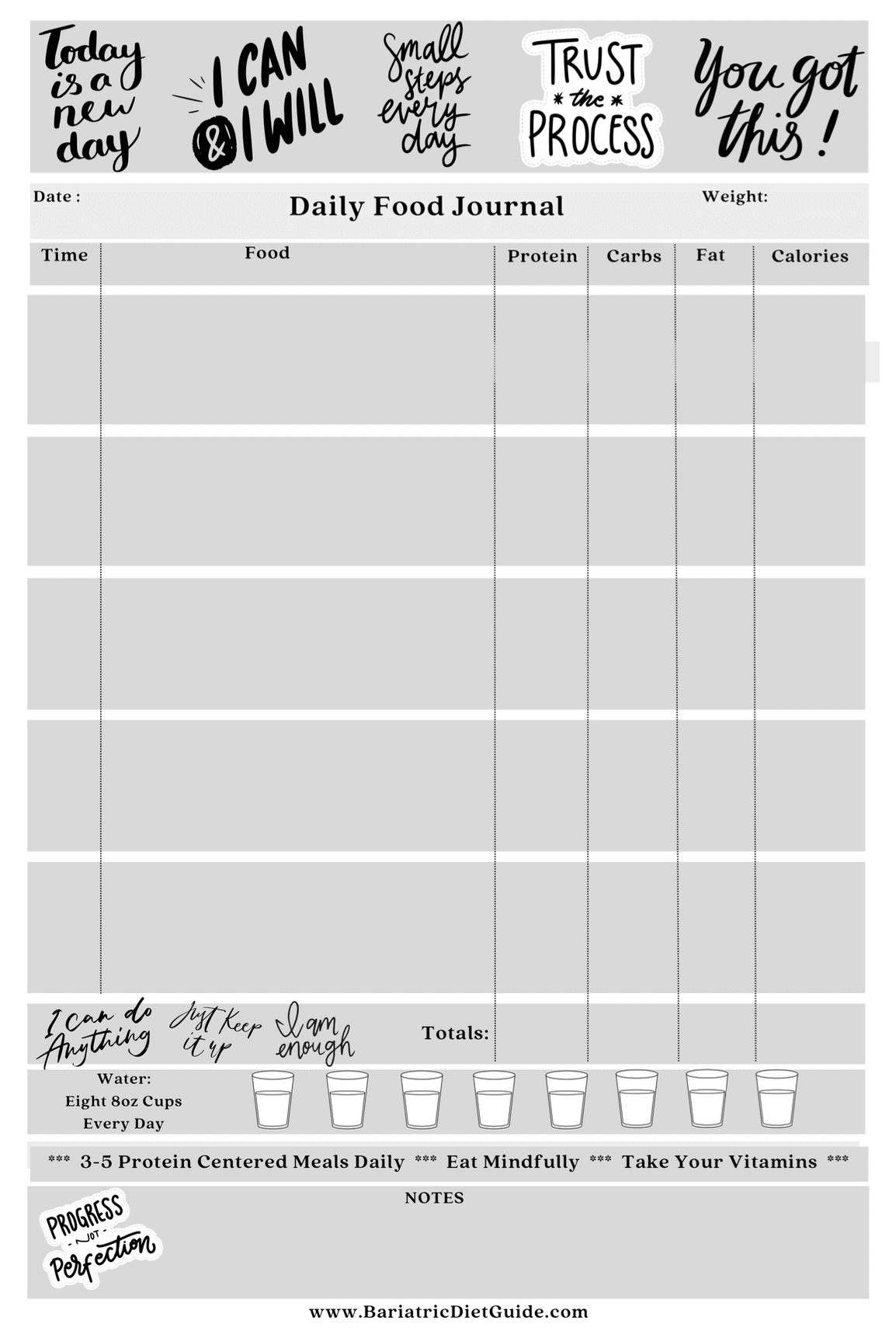Bariatric Protein Shakes
The Ultimate Guide
Bariatric protein shakes are the foundation of the diet for at least the first 2 months post op because it will be physically impossible to get the required protein from real food.
- Jump to bariatric protein shake criteria
- Jump to name brands
Bariatric Protein Shakes 101 Video
60-80 grams of protein per day is typically the assigned protein goal. Note: Follow your surgeon’s guidelines.
One 3oz chicken breast has approximately 20 grams of protein. So you’d have to eat 3-4 chicken breasts per day to hit your protein goal.
With a new stomach the size of an egg or small banana (depending on which surgical procedure you have), and the inability to eat solid food in the beginning, the ONLY way to hit those big protein numbers in the beginning is to drink your protein.
Enter the “bariatric diet protein shake.”
- In the beginning, get MOST of your protein from protein shakes, and supplement with food.
- In the long term, get most of your protein from food, and supplement with protein shakes when necessary.
While bariatric companies make protein shakes specifically marketed for weight loss surgery, there are plenty of over-the-counter products that can be used if you know what you're looking for. If a protein shake meets the following criteria, then it qualifies to be called a “bariatric diet protein shake:”
Bariatric Protein Shakes: Criteria
1. Protein dense: At least 20 grams protein per 8oz
Get the most protein in the smallest volume. You’re more likely to hit your protein goal if you can do so by drinking 2 shakes vs 3 because of the limited ability to drink a lot in the beginning.
If you pick an 11oz protein shake that only has 10 grams of protein, then you need to drink 6-8 of them (66-88oz) to hit your protein goal, right? Not happening!
2. Low sugar (<5 grams)
3. Low fat (<3 grams)
4. More protein grams than carbohydrate grams
5. Calories are less than 10 times the Protein grams:
Calorie Examples:
- If the protein is 20 grams, calories should be less than 200
- If the protein is 25 grams, calories should be less than 250
- If the protein is 30 grams, calories should be less than 300
- If the protein is 40 grams, calories should be less than 400
Get it?
Bariatric Protein Shake Criteria
Protein dense: At least 20 grams protein per 8oz
Low sugar (<5 grams)
Low fat (<3 grams)
More protein grams than carbohydrate grams
Calories are less than 10 times the Protein grams
Bariatric Protein Shakes:
Ready Made or Home-made?
To get the best quality protein and most protein dense
shake, using whey isolate protein powder and mixing your own shake is the best
way to go.
But given our on-the-go lifestyles, ready made protein drinks are a desirable, convenient option.
Popular Ready Made Protein Shakes
Thick/Milky Types:
- Premier
- Fairlife High Protein
- Quest Protein
- Ensure Max Protein
- Core Power Elite
- Muscle Milk Pro Series
- GNC Total Lean
- Lean Body by Labrada
Thin/Watery Types*:
- Premier Clear
- Atkins Lift
- Isopure
- Protein20
*Note: These aren’t as protein dense as the “milky” types
Bariatric Protein Shakes:
Common Challenges
These are the most common
barriers to drinking your protein shakes, and my suggestions of what to do.
Bariatric Protein Drinks: Common Challenges
Don’t Like the Taste
- Jazz them up: use extracts, spices, herbs
- Mix in blender with ice
- Try a different brand
- Mix your own from scratch
Too Sweet
- Dilute with water, milk, or nondairy milk
- Add decaf coffee
Too Thick/”Chalky”
- Dilute with water, milk or nondairy milk
- Blend with small chunk of banana or avocado
Too Milky
- Try thinner protein drinks/protein “waters”
- Thin with water, milk or nondairy milk
Cause Nausea/Vomiting
- Drink from a sippy cup
- Assure you’re drinking 64oz daily fluid. Dehydration makes you nauseated
Cause Diarrhea
- Switch to a protein drink made from whey isolate vs. whey concentrate or a whey blend
- Mix a protein shake from scratch using whey isolate protein powder


